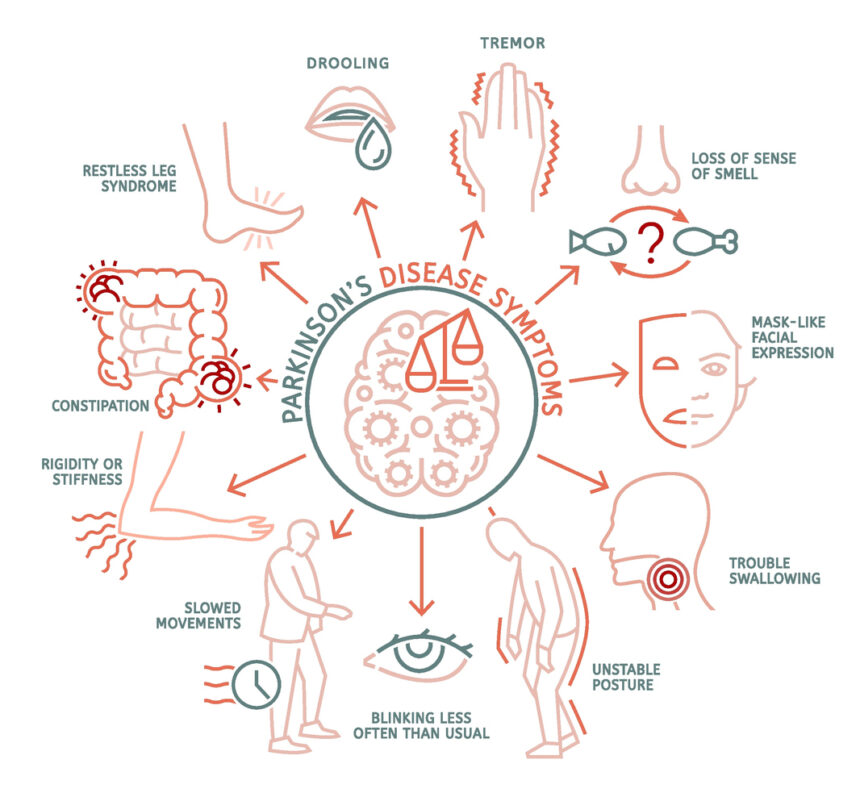A recent study led by Nagoya University Graduate School of Medicine in Japan has revealed a significant link between gut microbiota and Parkinson’s disease (PD). Researchers found that individuals with PD show a reduction in gut bacteria responsible for synthesising essential B vitamins B2 (riboflavin) and B7 (biotin). This deficiency is also associated with lower levels of compounds crucial for maintaining the intestinal barrier integrity, which normally prevents toxins from entering the bloodstream and causing inflammation observed in PD. Published in npj Parkinson’s Disease, these findings not only suggest a significant breakthrough in our understanding of PD but also inspire hope by proposing that treatment with B vitamins could potentially alleviate PD symptoms.
Parkinson’s disease is characterised by debilitating physical symptoms such as tremors, slow movement, stiffness, and balance issues, significantly impairing daily activities and mobility. Although the prevalence of PD varies among populations, it affects approximately 1-2% of individuals aged 55 years and older globally.
The gut microbiota, comprising microorganisms that inhabit the digestive tract, play pivotal roles in various physiological processes. Under optimal conditions, these microorganisms produce short-chain fatty acids (SCFAs) and polyamines, which are crucial for maintaining intestinal barrier integrity. Disruption of this barrier allows toxins to enter the bloodstream, potentially leading to inflammation in the brain and affecting neurotransmission critical for mental health.
To delve deeper into the gut microbial characteristics of PD patients, Hiroshi Nishiwaki and Jun Ueyama from Nagoya University Graduate School of Medicine conducted a comprehensive analysis using stool samples from PD patients across Japan, the United States, Germany, China, and Taiwan. They employed shotgun sequencing, a technique that sequences all genetic material within a sample, providing detailed insights into the microbial community and genetic composition.
Their analysis revealed a notable decrease in bacterial genes responsible for synthesising riboflavin (vitamin B2) and biotin (vitamin B7) among PD patients. These vitamins, derived from dietary sources and gut microbiota, possess anti-inflammatory properties that may counteract the neuroinflammation observed in PD. B vitamins are integral to metabolic processes influencing the production and function of SCFAs and polyamines, essential for maintaining intestinal barrier integrity. Examination of faecal metabolites further confirmed reductions in these compounds in PD patients.
These findings propose a potential mechanism underlying PD progression. According to Nishiwaki, deficiencies in polyamines and SCFAs may lead to thinning of the intestinal mucus layer and increased permeability, which is observed in PD patients. This heightened permeability exposes nerves to toxins, contributing to abnormal aggregation of alpha-synuclein, activating immune cells in the brain, and fostering long-term inflammation.
Nishiwaki suggests that supplementation therapy targeting riboflavin and biotin holds promise as a therapeutic approach to alleviate PD symptoms and slow disease progression. The study underscores the importance of understanding the intricate interplay between gut microbiota, metabolic pathways, and neurodegeneration. Importantly, it highlights the potential of personalised therapy tailored to individual microbiome profiles, which could empower individuals to take control of their health and potentially delay the onset and progression of PD symptoms.
This study represents a significant step towards unravelling the complex relationship between gut microbiota, metabolic pathways, and neurodegenerative diseases like Parkinson’s. It paves the way for targeted interventions that could enhance patient outcomes and quality of life through innovative nutritional therapies.
More information: Hiroshi Nishiwaki et al, Meta-analysis of shotgun sequencing of gut microbiota in Parkinson’s disease, npj Parkinson s Disease. DOI: 10.1038/s41531-024-00724-z
Journal information: npj Parkinson s Disease Provided by Nagoya University








